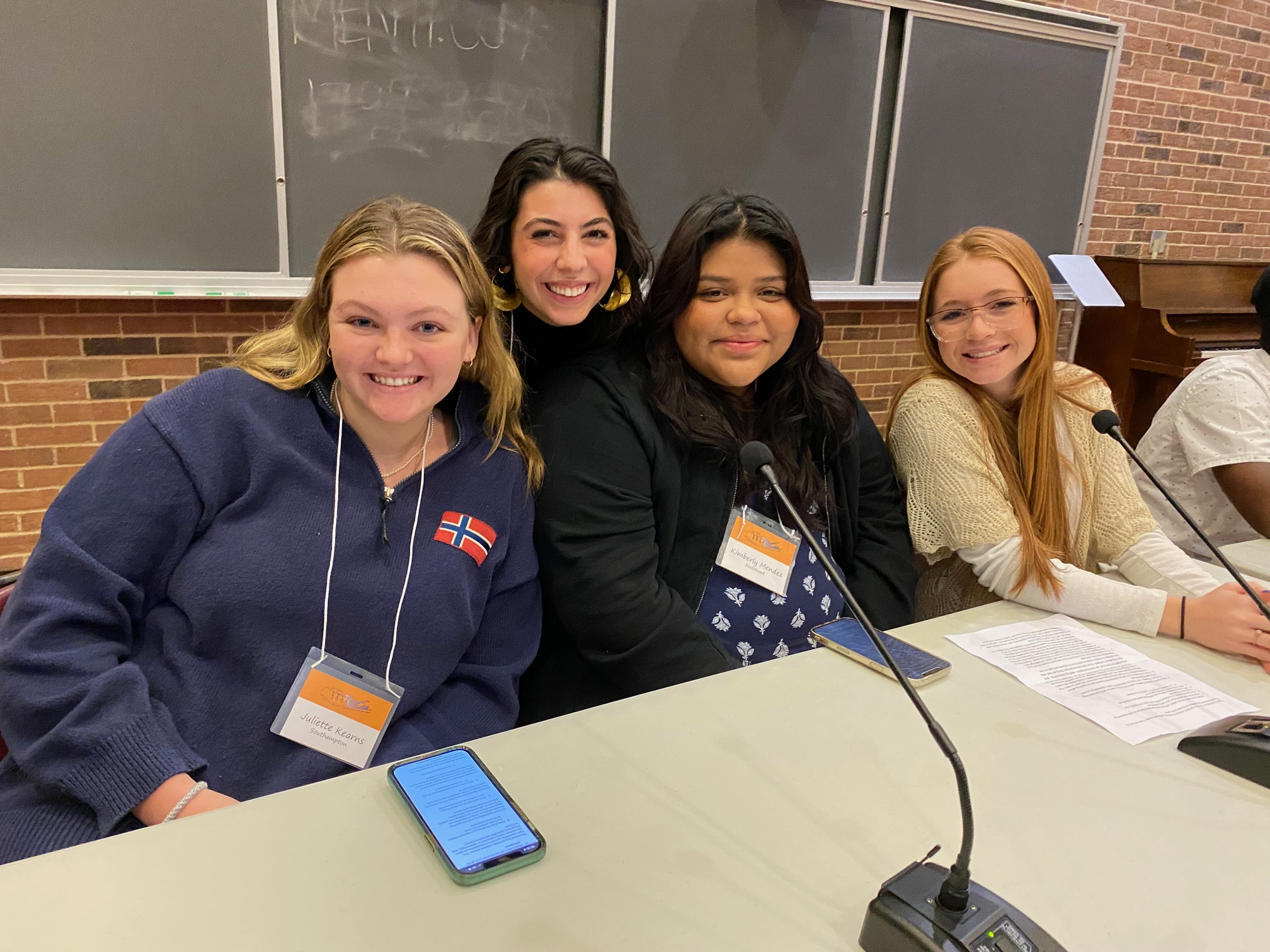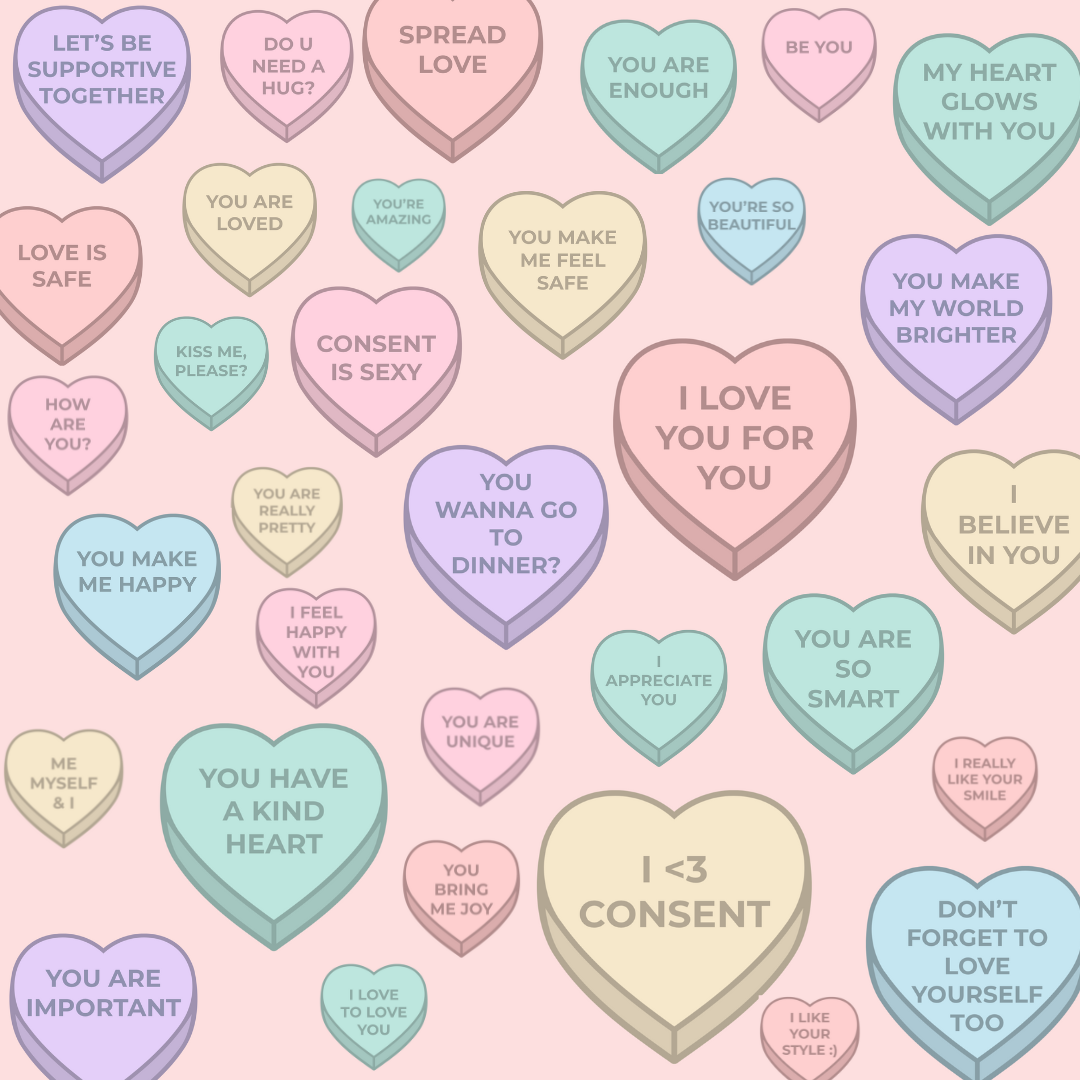The Retreat: Helping Teens Set Healthy Relationship Boundaries

One in 3 young people will be in an abusive or unhealthy relationship. During this Teen Dating Violence Awareness Month, The Retreat’s Teen Leadership Council is working to bring that statistic as close to zero as possible.
The Retreat is an East Hampton-based nonprofit that provides resources — including shelter, legal services, counseling, a 24-hour hotline, and more — to survivors of domestic abuse. Their Teen Leadership Council (TLC) comprises a group of high school students focused on preventative education. They’re dedicated to providing their peers the knowledge and resources to identify unhealthy relationship patterns, and empowering them to have healthier connections with their partners, friends, and loved ones.
“All of us have messy relationships,” says Prevention Education Program Director Helen Atkinson-Barnes. “We can all do better in terms of learning to connect, to take responsibility, to build that relationship with ourselves.”
The Teen Leadership Council helps its members connect with themselves and others by practicing relationship essentials in a safe space. Through activities like practice dialogues, members learn skills such as establishing healthy boundaries. When people are able to practice setting boundaries in a comfortable environment, they eventually feel more confident doing so in their day-to-day lives.
“One of the most important lessons I learned was how to say no,” says Aela Bailey, 18. “I struggled with this a lot when I was younger, both in friendships and relationships, and I feel like TLC helped to give me a voice.”
TLC applies the same concept to identifying red flags in relationships. The members have continuous dialogues about what are healthy and unhealthy behaviors in relationships. Common themes that surface include high levels of jealousy, controlling behavior, manipulation, and a lack of privacy.

“Being in TLC helps you to put a name to the face, meaning you’re not questioning, ‘Oh, is this what’s supposed to be happening?’” explains Bailey. “Now it’s more like, ‘I know exactly what this is,’ and I can identify it in my relationship and work on it, and make it stronger.”
Part of what makes the Teen Leadership Council so effective is that it’s built by a community of high school students. They have insight to the problems and relationship dynamics that are specific to this generation, so can come to peers from a place of support and respect rather than the unintended condescension of some well-meaning adults.
“One of the [lessons] that really sticks out to me is how we go about supporting people that are experiencing dating violence,” shares TLC member Kimberly Mendez, 17. “You don’t want to come off as judgemental or aggressive. You want to be a support system.”
She further explains that one of the biggest problems this generation faces is a lack of healthy coping mechanisms to deal with unhealthy relationships. This is especially challenging considering the new ways in which dating violence manifests in the modern age. New red flags are becoming more and more common: insisting on shared social media passwords, stalking someone’s online location, and disregard for their phone privacy.
“[Dating violence today] is not always the same as what we experienced,” says Director Atkinson-Barnes. “So much of relationships are online these days, whether it’s through dating apps or social media. That whole world is constantly evolving. So teens are their own best experts on these issues.”
Juliette Kearns, 18, explains that a huge factor for modern dating violence is how relationships are portrayed on our screens.
“It’s perpetuated so much by the media,” she says. “In TV and movies we see so many red flags and dangerous signs that are normalized. And people don’t know any better because it’s excused, and put into this different light.”
She shares that one of TLC’s biggest mantras is that love is learned. That’s why it’s so powerful that the members of TLC use what they learn to treat not only their partners, but everyone, with compassion and respect. In the words of Courtney Hyland, The Retreat’s Prevention Education and Distance Learning Specialist, they “model the behavior they hope to see in others.”
“Relationship violence or unhealthy behavior comes up in everyone’s life in some way shape or form,” says Kearns. “So to do what you can to educate yourself and spread as much information as you can is really important.”
By educating in a way that is preventative rather than reactive, the Teen Leadership Council empowers everyone to have healthier relationships with their significant others, their friends, and themselves. This February, we can all learn how to be more mindful in our relationships by taking a cue from TLC’s methods and resources.
For a hotline, educational resources, or to learn more about TLC, visit The Retreat’s website, allagainstabuse.org



